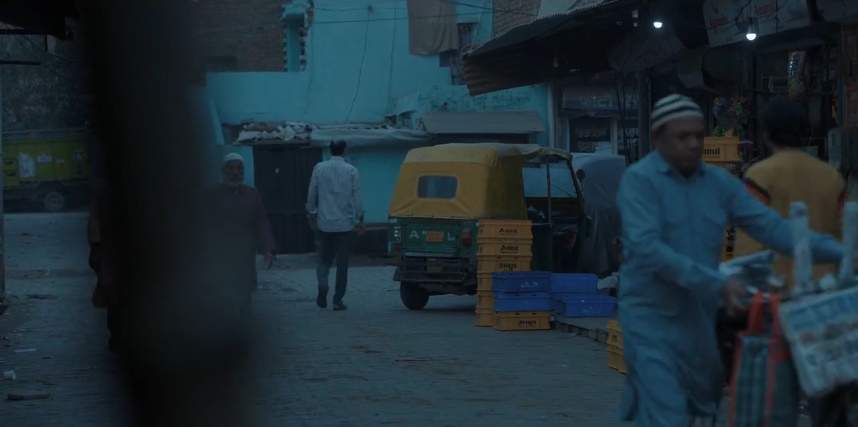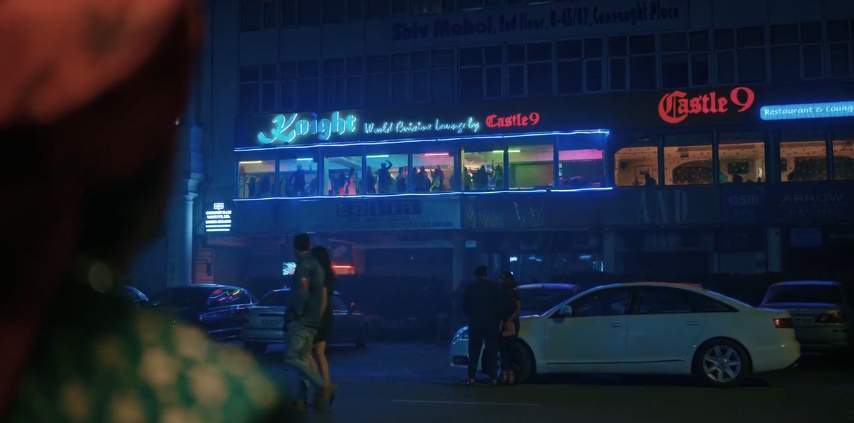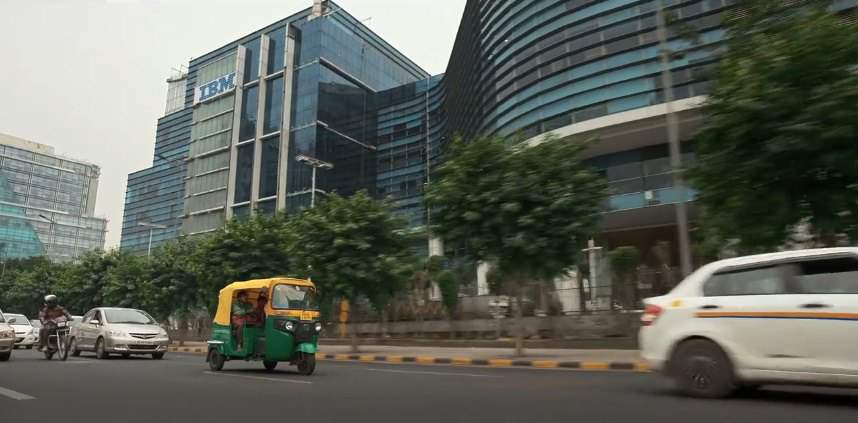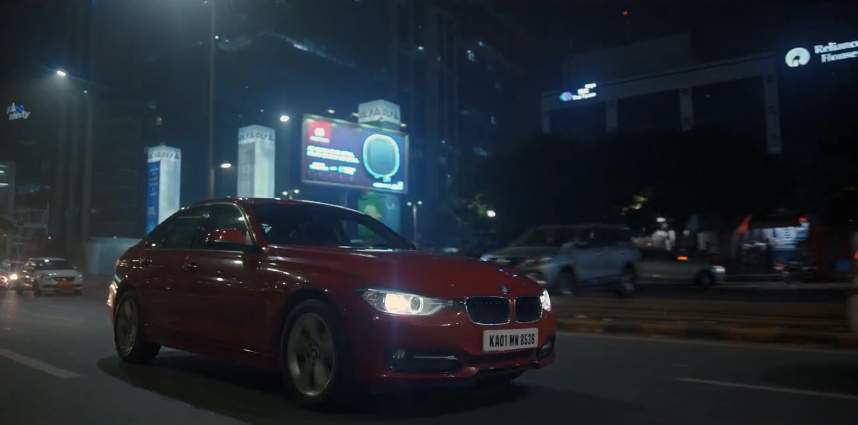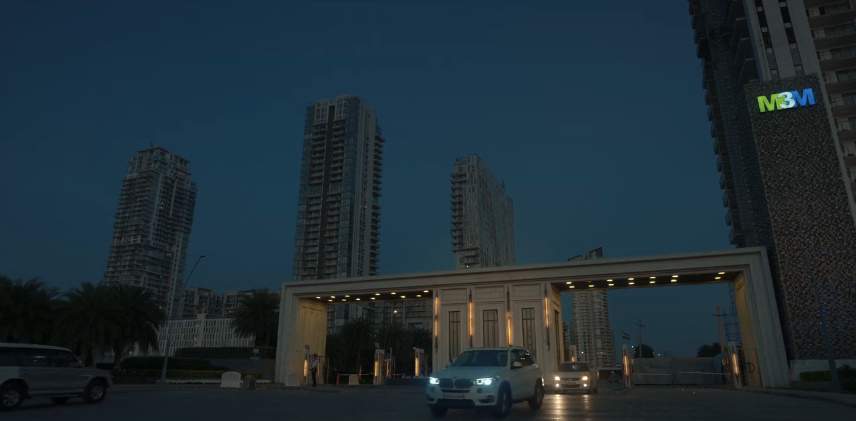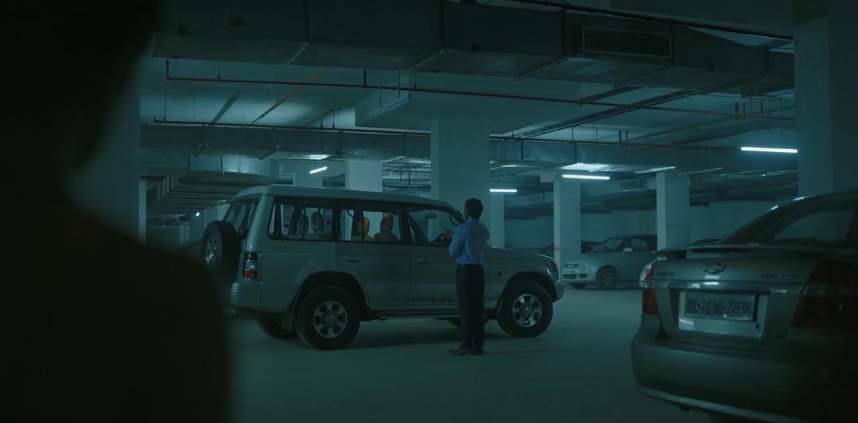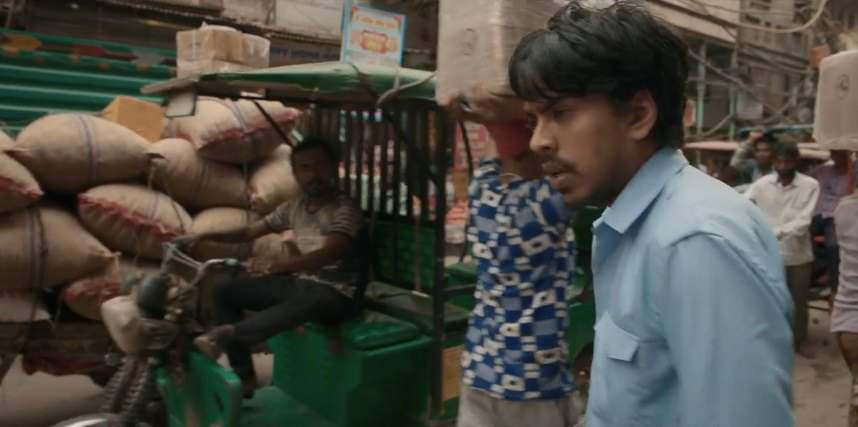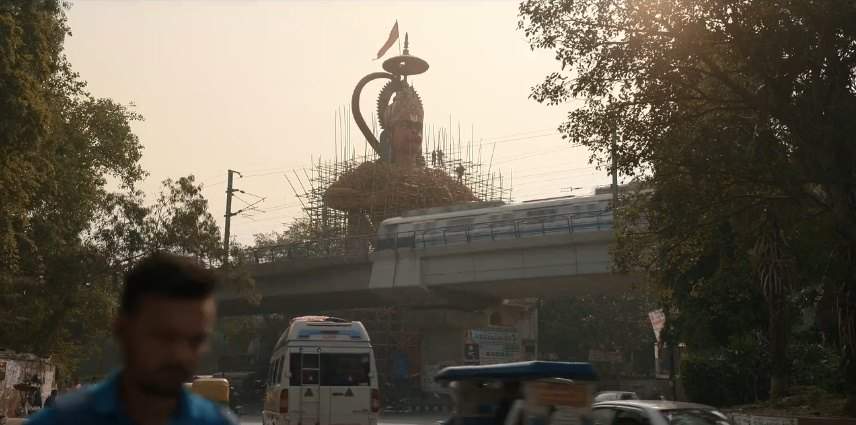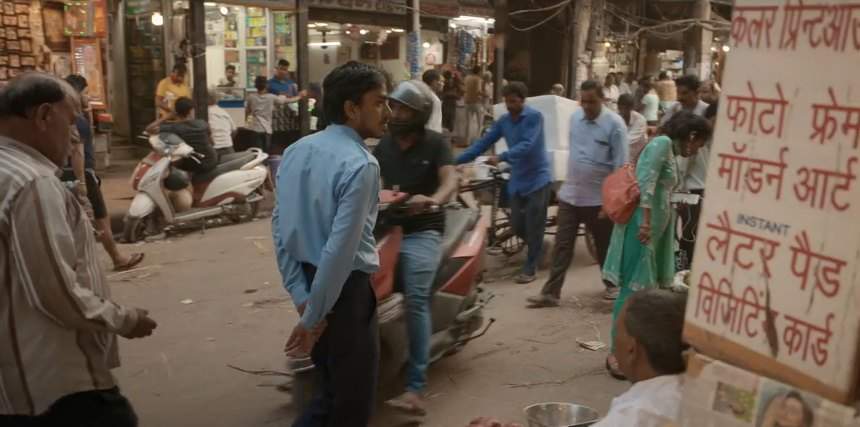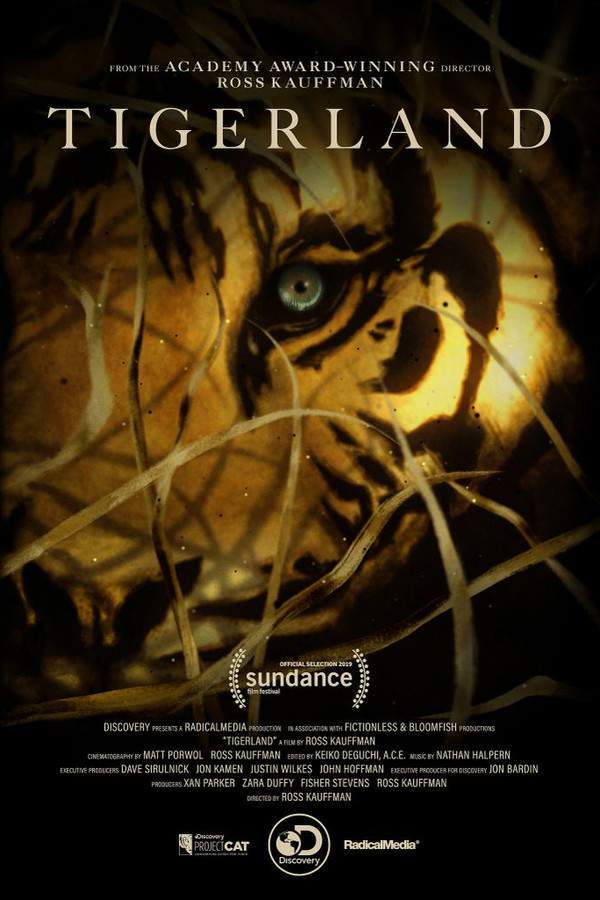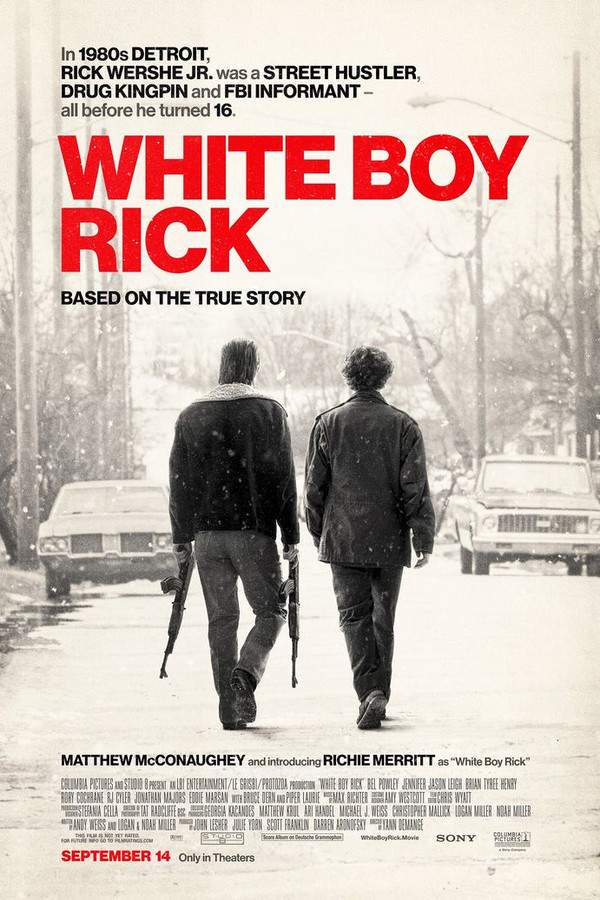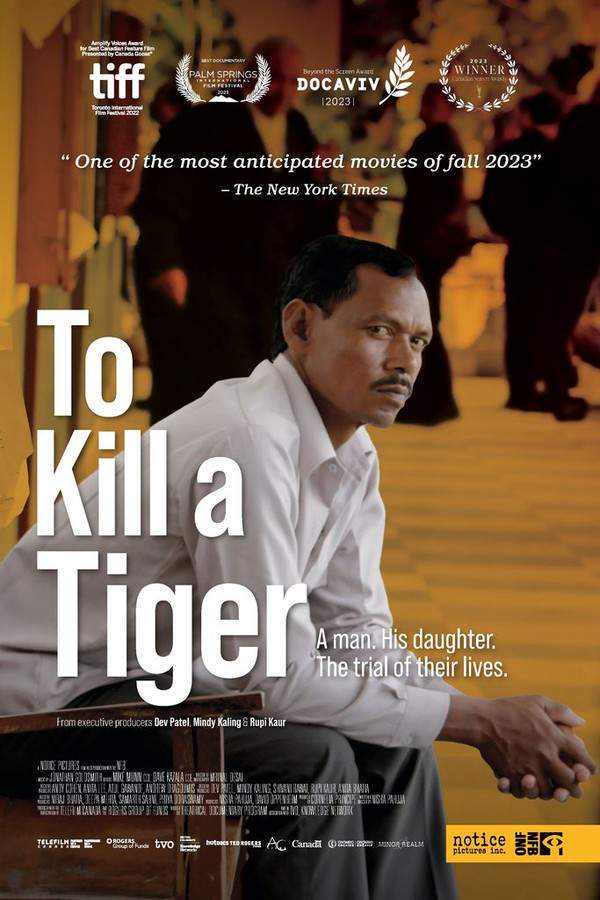The White Tiger 2021
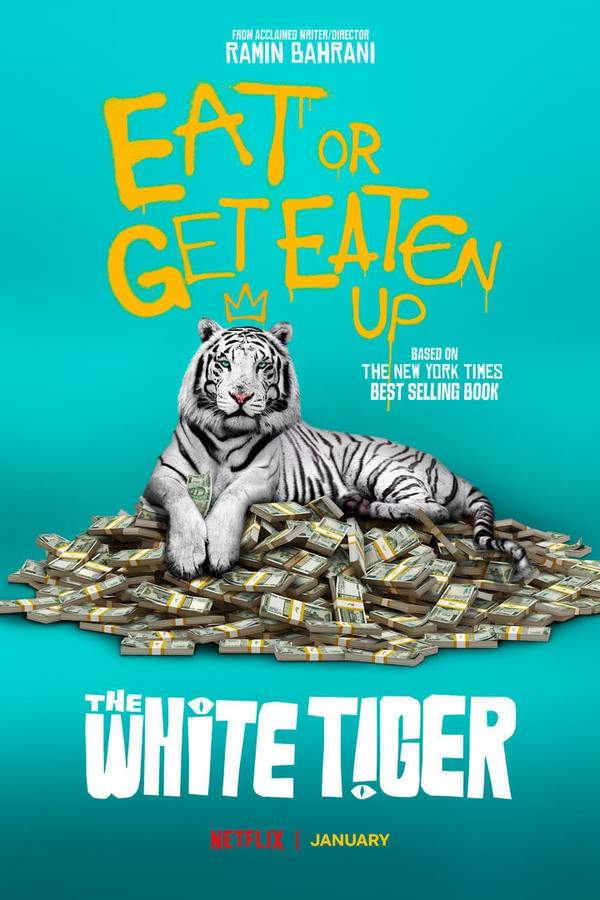
Balram Halwai, born into poverty in modern India, uses his intelligence and ambition to escape his circumstances and rise through the social ranks. His journey involves navigating a complex web of privilege, corruption, and the rigid structures of a deeply unequal society. He confronts the moral compromises necessary for advancement and the difficult choices that come with challenging the established order.
Does The White Tiger have end credit scenes?
No!
The White Tiger does not have end credit scenes. You can leave when the credits roll.
Meet the Full Cast and Actors of The White Tiger
Explore the complete cast of The White Tiger, including both lead and supporting actors. Learn who plays each character, discover their past roles and achievements, and find out what makes this ensemble cast stand out in the world of film and television.

Priyanka Chopra

Aaron Wan

Abhishek Khandekar

Adarsh Gourav
Balram

Ansuman Bhagat

Arun Khator

Harshit Mahawar
Young Balram

Kamlesh Gill
Granny

Lokesh Mittal
Socialist's Sidekick

Mahesh Manjrekar
The Stork

Mahesh Pillai
School Inspector

Nalneesh Neel
The Vitiligo

Paras Gola

Perrie Kapernaros

Raj Kumar Yadav

Ram Naresh Diwakar

Sandeep Singh
Young Kishan

Satish Kumar
Balram's Father

Solanki Diwakar

Swaroop Sampat
The Great Socialist

Tilak Raj
Tea Shop Owner

Vedant Sinha
Dharam

Vijay Maurya
Mukesh 'The Mongoose'
External Links and Streaming Options
Discover where to watch The White Tiger online, including streaming platforms, rental options, and official sources. Compare reviews, ratings, and in-depth movie information across sites like IMDb, TMDb, Wikipedia or Rotten Tomatoes.
Ratings and Reviews for The White Tiger
See how The White Tiger is rated across major platforms like IMDb, Metacritic, and TMDb. Compare audience scores and critic reviews to understand where The White Tiger stands among top-rated movies in its genre.

The Movie Echo Score
This film excels in its incisive social critique and strong central performance. Many reviewers highlight its vivid depiction of class struggle and a compelling narrative that charts Balram’s ascent. The direction and visual craftsmanship are frequently noted for their dynamic energy. However, some pacing issues and occasional narrative contrivances temper its momentum. Net impression reveals a thought-provoking, stylistically assured drama.
The Movie Echo Score Breakdown for The White Tiger

Art & Craft
In terms of art and craft, the film’s direction and cinematography are frequently praised for their polished composition and effective use of light and shadow. The production design and editing yield a cohesive visual aesthetic that reflects the protagonist’s journey. Despite occasional uneven transitions, the overall craftsmanship contributes to a compelling on-screen presentation.

Character & Emotion
When it comes to character and emotion, Adarsh Gourav’s portrayal is consistently noted for its intensity and nuance, anchoring the narrative. Supporting roles add depth, though some secondary figures receive less development. Emotional resonance emerges from Balram’s transformation and his interactions, generating a strong empathetic response. Overall, the performances enrich the film’s exploration of social inequality.

Story & Flow
Regarding story and flow, the narrative’s bold examination of capitalism and class struggle is frequently commended for its thematic clarity. Reviewers note a captivating arc in Balram’s rise, supported by clever social commentary. However, pacing dips and occasional plot contrivances interrupt momentum, leading to uneven engagement at times. The net effect remains a thought-provoking and spirited storyline.

Sensory Experience
In terms of sensory experience, the film’s visual style is often highlighted for its striking contrasts and fluid camera movement. The sound design and musical score underpin the emotional beats, reinforcing tension and atmosphere. While not uniformly prominent, these elements cohere to support the film’s tone. Overall, the sensory components amplify the storytelling without overwhelming it.

Rewatch Factor
Regarding rewatch factor, the film’s thematic richness and stylistic vigor offer incentives for repeat viewings. The bold narrative and layered commentary can reveal additional nuance on subsequent watches. Yet the serious tone and deliberate pacing may limit appeal for some audiences pursuing lighter entertainment. Overall, the rewatch value remains solid for viewers interested in its social critique and craftsmanship.

76
Metascore
6.9
User Score


91%
TOMATOMETER

79%
User Score

7.1 /10
IMDb Rating

70
%
User Score

3.5
From 90 fan ratings

4.00/5
From 4 fan ratings
Take the Ultimate The White Tiger Movie Quiz
Challenge your knowledge of The White Tiger with this fun and interactive movie quiz. Test yourself on key plot points, iconic characters, hidden details, and memorable moments to see how well you really know the film.
The White Tiger Quiz: Test your knowledge about the thrilling narrative and complex themes of 'The White Tiger.'
What does Balram refer to when he mentions a 'white tiger'?
A common animal in the wild
A rare breed capable of greatness
A metaphor for wealth
A symbol of rebellion
Show hint
Awards & Nominations for The White Tiger
Discover all the awards and nominations received by The White Tiger, from Oscars to film festival honors. Learn how The White Tiger and its cast and crew have been recognized by critics and the industry alike.
93rd Academy Awards 2021
Writing (Adapted Screenplay)
74th British Academy Film Awards 2021


36th Film Independent Spirit Awards 2021

Full Plot Summary and Ending Explained for The White Tiger
Read the complete plot summary of The White Tiger, including all major events, twists, and the full ending explained in detail. Explore key characters, themes, hidden meanings, and everything you need to understand the story from beginning to end.
In 2010, driven entrepreneur Balram Halwai reaches out to Chinese Premier Wen Jiabao via email from Bangalore, requesting a meeting and sharing the intricacies of his life story. He articulates a powerful belief that the Indian underclass is ensnared in an eternal cycle of servitude, much like chickens trapped in a coop. He expresses admiration for the Chinese, who resisted becoming servants to the British, a fate he believes was imposed on his own countrymen.
Growing up in Laxmangarh, Balram earns a scholarship to a prestigious school in Delhi due to his exceptional academic performance. He is dubbed a “white tiger,” a rare individual born once every century. Influenced by the teachings of the Great Socialist, he learns that anyone can aspire to become Prime Minister of India.
Balram’s humble beginnings are marked by his father’s struggle as a rickshaw puller, who is unable to repay the village landlord, the Stork, a man who demands one-third of their earnings. The Stork’s son, Mukesh “The Mongoose” Shah, is instilled with fear throughout the village.
Pressured by his grandmother Kusum, Balram abandons school to work at a tea stall alongside his brother Kishan. Tragedies mount when Balram’s father succumbs to tuberculosis without medical assistance after a grueling two-day journey to the nearest hospital.
In his teenage years, still toiling at the tea stall, Balram yearns to become a chauffeur for Ashok, the Stork’s son, who returns from the United States with his wife Pinky. He pleads with Kusum for ₹300 for driving lessons, but she denies him, resulting in Balram’s conviction that he is destined to remain entrapped by his circumstances.
Undeterred, Balram persuades his grandmother to finance his driving lessons, promising to share his eventual chauffeur salary. Leaving behind his village, he navigates to Dhanbad, where the Stork family’s wealth is rooted in coal mining. He learns basic driving and soon arrives at the magnificent Stork mansion.
During a test drive with the family, Balram openly declares his low caste status yet assures them of his daily hygiene and culinary skills from his caste background. Impressed, he is offered ₹1500 as a monthly salary during probation, escalating to ₹2000 upon confirmation. The family meticulously checks Balram’s background, indicating that any hint of betrayal could lead to the annihilation of his entire family.
Balram, now hired as the Storks’ second driver, is also subjected to menial chores and is consistently mistreated. The looming threat of violence against his family maintains his loyalty. Ashok, ambitious and progressive, dreams of launching a digital business aimed at elevating the lives of people like Balram, but his family remains rooted in their coal-powered history.
A turning point arises one night when Balram discovers the primary driver preparing food outside. Following him the next day leads Balram to a mosque, revealing the family’s deep-rooted prejudice against Muslims during Ramadan. Meanwhile, the Great Socialist ascends to the position of Chief Minister and imposes a ₹25 lakh bribe on the Storks, maintaining their coal mining operations.
As Ashok and Pinky plot their move to Delhi to bribe opposing politicians for tax evasion, Mukesh belittles Pinky’s capabilities despite her medical education from NYU. After Balram exposes the family’s primary driver’s religion, he is dismissed, and Balram accompanies Ashok and Pinky to the bustling capital.
In Delhi, unlike other family members, Ashok and Pinky treat Balram with a modicum of respect, fostering a more personal bond. However, he remains acutely aware of his servant status. When Ashok and Pinky embark on their journey to visit Ashok’s uncle in Laxmangarh, Balram is reminded of his family responsibilities that he has neglected since relocating.
Ultimately, on Pinky’s birthday, she and Ashok’s reckless decisions lead them to a devastating accident where a child loses his life. Balram reacts swiftly, taking control of the situation and fleeing the scene with Ashok and Pinky. Despite scrubbing every trace of the incident from their vehicle, the Stork family pressures Balram into signing a false confession.
With Pinky leaving for New York, Ashok lashes out when he learns Balram assisted her at the airport, and for the first time, Balram retaliates. This pivotal moment catalyzes Balram’s realization: mere compliance does not guarantee security or stability in his life. Wracked with anger for signing the confession without reward, he devises a plan to outsmart Ashok financially.
Operating under a web of deception, Balram begins generating fake invoices and pocketing money from selling the family car’s petrol, alongside secretly working as an unregistered taxi service. Struggles mount as he faces disapproval for donating change to a beggar, and his grandmother unexpectedly sends one of his younger nephews to live with him, chained to the fate of marriage.
As Ashok readies a large bribe and seeks to uninstall Balram for a new driver, the Great Socialist wins the elections, demanding an exorbitant ₹40 lakh bribe from Ashok. In a moment of clarity, Balram decides he cannot remain shackled to servitude. This leads him to confront Ashok, ultimately murdering him with a broken whiskey bottle before absconding with the money and his nephew Dharam.
Now on the run, Balram reaches Bangalore, a burgeoning hub for IT firms, using part of the stolen funds to bribe law enforcement and eliminate competition from unlicensed taxi services. Capitalizing on his newfound opportunity, he establishes his own successful taxi company, treating his drivers with dignity and responsibility.
Balram supports his nephew’s education while grappling with the harsh reality that his family back home may have faced dire consequences due to his severance from the oppressive Stork family. Ultimately, reveling in his hard-won freedom, Balram announces his new identity, Ashok Sharma, marking his triumph over a life of servitude.
Uncover the Details: Timeline, Characters, Themes, and Beyond!

Coming soon on iOS and Android
The Plot Explained Mobile App
From blockbusters to hidden gems — dive into movie stories anytime, anywhere. Save your favorites, discover plots faster, and never miss a twist again.
Sign up to be the first to know when we launch. Your email stays private — always.
Watch Trailers, Clips & Behind-the-Scenes for The White Tiger
Watch official trailers, exclusive clips, cast interviews, and behind-the-scenes footage from The White Tiger. Dive deeper into the making of the film, its standout moments, and key production insights.
Cars Featured in The White Tiger
Explore all cars featured in The White Tiger, including their makes, models, scenes they appear in, and their significance to the plot. A must-read for car enthusiasts and movie buffs alike.
The White Tiger Themes and Keywords
Discover the central themes, ideas, and keywords that define the movie’s story, tone, and message. Analyze the film’s deeper meanings, genre influences, and recurring concepts.
The White Tiger Other Names and Titles
Explore the various alternative titles, translations, and other names used for The White Tiger across different regions and languages. Understand how the film is marketed and recognized worldwide.
Similar Movies To The White Tiger You Should Know About
Browse a curated list of movies similar in genre, tone, characters, or story structure. Discover new titles like the one you're watching, perfect for fans of related plots, vibes, or cinematic styles.
Quick Links: Summary, Cast, Ratings, More

What's After the Movie?
Not sure whether to stay after the credits? Find out!
Explore Our Movie Platform
New Movie Releases (2026)
Famous Movie Actors
Top Film Production Studios
Movie Plot Summaries & Endings
Major Movie Awards & Winners
Best Concert Films & Music Documentaries
Movie Collections and Curated Lists
© 2026 What's After the Movie. All rights reserved.














